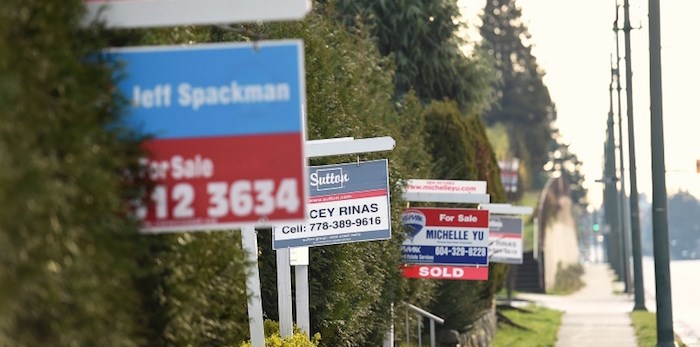“Finally, the market correction we’ve been waiting for!” I hear people saying recently. “Maybe now I’ll actually be able to buy my first home.”
Well, cool your jets there, enthusiastic would-be buyer. I’m sorry to break it to you, but there are reasons that home sales in major B.C. centres have fallen off a cliff, and that prices are teetering on the edge of the same abyss. And those reasons are what will probably prevent you from buying a home any more affordably than before.
 Photo by Dan Toulgoet
Photo by Dan Toulgoet
Here’s the thing. People will always buy real estate at the maximum price that they can afford – it’s just human nature to make a nest that you can be proud of. If lenders and governments make it really easy, and cheap, for people to borrow a lot of money to buy a home, those people will do so. Consequently, real estate prices go up. That's what was happening with our record low interest rates over the past few years.
As soon as you start doing the reverse – making it both harder and more expensive – people won’t be able to buy homes at the same price as before. They’ll buy cheaper homes (or won’t buy at all), real estate sales will plummet and prices will eventually follow suit.
That’s what we’re seeing right now in markets across B.C., but most notably Metro Vancouver, the Fraser Valley and Victoria. This is a very simplistic generalization for the purposes of clarity, and there are certainly other factors also at play, but the combination of the mortgage stress test introduced in January this year, along with mortgage interest rates rising, are making it much more expensive to buy a home. Therefore the market correspondingly balances this out with declining prices, and the net result is that it will probably cost about the same for a first-time buyer to get into the market as before.
Here’s a hypothetical example. Let’s say condo prices, which are starting to reverse, slide by 10 per cent by December this year, compared with December of last year. Let’s say you were unable to afford a $500K condo a year ago (you have a max budget of $450K, including $50K down), but you start thinking you could now afford the same condo, as it's now priced 10 per cent lower at $450K.
Unfortunately, you’re wrong. The mortgage rate you could have qualified at last year is now much higher under the stress test. So even if you could reasonably afford the mortgage payments on a $450K condo, your purchase power has been reduced by around 20 per cent. So you now have to find a home for $360K to qualify.
And you’re thinking, OK, I have to get a smaller place, but at least the mortgage is more affordable, right? Well, then you have to factor in the series of interest rate increases that are making your monthly mortgage payments higher than a year ago. If you had bought that same $360K condo a year previously, when it was priced at $400K, you’d be paying the same monthly amount if you had fixed a 2.5 per cent rate then, versus a 3.5 per cent rate now. (And you’d have saved yourself a year of rent payments.) The price reduction hasn’t helped you at all.
So do falling prices benefit anybody in this market? Well, maybe, and probably only temporarily. If you’re already a condo or townhome owner with a decent amount of equity, you could use this window of opportunity to move up into a house. Right now, detached home prices have fallen much more than condo or townhome prices, so the gap between values has narrowed. If you have enough equity that you can easily qualify under the stress test, now might be your chance to get into a house, before condo and townhome prices also slide too far.
As is so often the case, the conclusion is that this market is potentially good news for some of the haves, and likely either bad or indifferent news for the have-nots.
My personal advice? Stop worrying about what the market is doing. Do whatever you can to become a "have" in real estate – and that probably means having just a little less than you might want.


